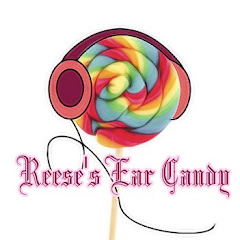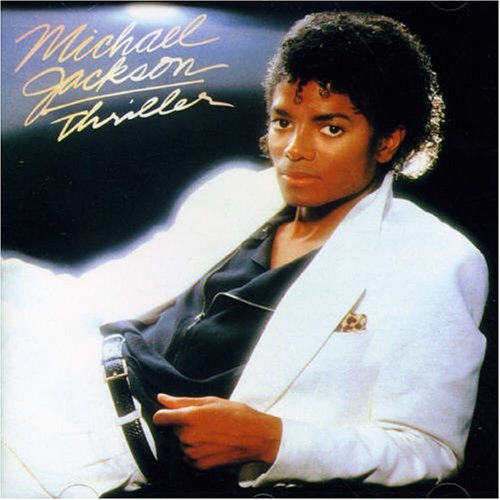
Did you see the movie Cadillac Records? You know the story about Leonard Chess (and Phil Chess, but he is barely mentioned in the movie) and the blues musicians, such as Muddy Waters, Howling Wolf, and Chuck Berry, he worked with at his Chess Records label. Well, my summer job as a research assistant will be covering a topic that includes the Chess Brothers. This summer, I will be researching on Jewish middlemen and the Black musicians they worked with. See, from about the 1920s to the 1960s, most of the middleman in the music industry (managers, record label owners, promoters, venue operators, etc.) were Jewish. The professor, I am working with, Robert Cherry, who studies economics of discrimination, says about 95% were. Over the years, these middlemen have been criticized for exploiting black musicians and not paying them what they deserved. The objective of this project is to see to what extent is that true, since there is always two sides to every story. Here is the official description of the job:
From about 1925-1965 black-inspired music (jazz, blues, and early rock ‘n’ roll) moved from the periphery to the mainstream of American popular culture. While it was dominantly performed by black artists, virtually all of the record company owners, business agents, and major venue operators were Jewish. This project looks at the role that these Jewish middlemen played and to what extent claims of exploitation are justified. The student will examine jazz archives in the New York City area, particularly music magazines articles and the black press to get a better understanding of how these middlemen were perceived during that time period. We will meet weekly to evaluate progress and decisions on what sources to utilize.
While I will officially start researching next week, at places like the Schomburg Center for Research in Black Studies and starting off with the Jazz era of the 1920s to the early 1940s, Professor Cherry has given me some of his research that he has found already. Here is a brief overview of that:
* Two groups of Jewish middlemen: those who were genuine Jazz fans, such as Milt Gabler (Commodore), Jerry Wexler (Atlantic) and Bobby Weinstock (Prestige), and those who had little interest in black music, but entrepreneurial skills led them to believe it would make them profits, such as Frank Schiffman (Apollo theatre and other Harlem venues), Herman Lubinksy (Savoy Records), Leonard Chess (Chess Records) and Syd Nathan (King Records).
*Relationships between Jewish middlemen and black musicians is a complicated one. Many of the black musicians would not have received much exposure without them because during those times white businessmen were not willing to work with black businessmen in general. Also, Jewish people were in a weird position because they were discriminated against (ex. with KKK) and did have high positions in a lot of social organizations (ex. NAACP), but their white skin allowed for them to maneuver easier in society. White businessmen were willing to work with Jewish people and many Jewish people own stores and other businesses in black areas like Harlem. Also, to many Christians, Jazz was considered to be base. So, black people had very little choice but to work with Jewish middlemen, even the bad ones.
*However, since many record labels were competing, successful artists could move among the record companies, such as with Little Esther Mae Jones.
* In the 1930s, many record labels were independents and had a high risk of failure, which made paying artists less easier to do since they wanted to make profits and they needed to make money off of successful artists to pay for the cost of failures (recording sessions, advances, unsold records).
* Distributors also made it extra hard for record companies to make a profit; many companies shutdown because they could not keep up with the costs.
*One of the most criticized record owners was Herman Lubinsky of Savoy Records. He started off selling electronics and later began selling records out of his store. The label recorded some of the first bebop Jazz albums, like ones for Charlie Parker, Miles Davis and Dexter Gordon and later other artists like Varetta Dillard, Big Maybelle and Nappy Brown. He also included avant-garde Jazz and gospel in the following years. Lubinksy actually disdained black music and was unwilling to understand it at all in addition to being a cheap individual.
*Another interesting fact is that several of the first Jazz bands were led by Jewish musicians, most notably, Benny Goodman and Artie Shaw. Only until around 1940s did black bandleaders, like Duke Ellington and Count Basie come to the forefront more.
*Also, most of the songwriters were Jewish, which creates a problems when people criticize that black musicians did not get copyright royalties. Well, many, especially popular Jazz musicians, did not writer their own songs or did not write them completely by themselves.
* There were managers and record owners who did try to help black musicians in society outside of business. Count Basie's manager Norman Granz. Granz found the record label Verve in addition to starting many Jazz festivals and Jazz at the Philharmonic. He helped Ella Fitzgerald become more popular by introducing her to the Cole Porter Songbook. Oscar Peterson said that Granz stood up for many black musicians in the segregated South even when policemen were pointing guns at him. He also demanded equal pay and accommodation for black and white artists. Also, he promoted the first mixed raced concerts in the Deep South.
* Many critics say that Jewish middlemen commercialized black music so much that it lost its authentic sound. For example, Irving Mills and Duke Ellington, and Joe Glaser and Louis Armstrong have been labeled with this criticism. Several critics also see it as part of the paternalistic relationship between owners and artists. This may be true, but that has always been the case with popular music in order to appeal to the masses, unfortunately.
More research is coming and I will give weekly update on what I find.... STAY TUNED!
From about 1925-1965 black-inspired music (jazz, blues, and early rock ‘n’ roll) moved from the periphery to the mainstream of American popular culture. While it was dominantly performed by black artists, virtually all of the record company owners, business agents, and major venue operators were Jewish. This project looks at the role that these Jewish middlemen played and to what extent claims of exploitation are justified. The student will examine jazz archives in the New York City area, particularly music magazines articles and the black press to get a better understanding of how these middlemen were perceived during that time period. We will meet weekly to evaluate progress and decisions on what sources to utilize.
While I will officially start researching next week, at places like the Schomburg Center for Research in Black Studies and starting off with the Jazz era of the 1920s to the early 1940s, Professor Cherry has given me some of his research that he has found already. Here is a brief overview of that:
* Two groups of Jewish middlemen: those who were genuine Jazz fans, such as Milt Gabler (Commodore), Jerry Wexler (Atlantic) and Bobby Weinstock (Prestige), and those who had little interest in black music, but entrepreneurial skills led them to believe it would make them profits, such as Frank Schiffman (Apollo theatre and other Harlem venues), Herman Lubinksy (Savoy Records), Leonard Chess (Chess Records) and Syd Nathan (King Records).
*Relationships between Jewish middlemen and black musicians is a complicated one. Many of the black musicians would not have received much exposure without them because during those times white businessmen were not willing to work with black businessmen in general. Also, Jewish people were in a weird position because they were discriminated against (ex. with KKK) and did have high positions in a lot of social organizations (ex. NAACP), but their white skin allowed for them to maneuver easier in society. White businessmen were willing to work with Jewish people and many Jewish people own stores and other businesses in black areas like Harlem. Also, to many Christians, Jazz was considered to be base. So, black people had very little choice but to work with Jewish middlemen, even the bad ones.
*However, since many record labels were competing, successful artists could move among the record companies, such as with Little Esther Mae Jones.
* In the 1930s, many record labels were independents and had a high risk of failure, which made paying artists less easier to do since they wanted to make profits and they needed to make money off of successful artists to pay for the cost of failures (recording sessions, advances, unsold records).
* Distributors also made it extra hard for record companies to make a profit; many companies shutdown because they could not keep up with the costs.
*One of the most criticized record owners was Herman Lubinsky of Savoy Records. He started off selling electronics and later began selling records out of his store. The label recorded some of the first bebop Jazz albums, like ones for Charlie Parker, Miles Davis and Dexter Gordon and later other artists like Varetta Dillard, Big Maybelle and Nappy Brown. He also included avant-garde Jazz and gospel in the following years. Lubinksy actually disdained black music and was unwilling to understand it at all in addition to being a cheap individual.
*Another interesting fact is that several of the first Jazz bands were led by Jewish musicians, most notably, Benny Goodman and Artie Shaw. Only until around 1940s did black bandleaders, like Duke Ellington and Count Basie come to the forefront more.
*Also, most of the songwriters were Jewish, which creates a problems when people criticize that black musicians did not get copyright royalties. Well, many, especially popular Jazz musicians, did not writer their own songs or did not write them completely by themselves.
* There were managers and record owners who did try to help black musicians in society outside of business. Count Basie's manager Norman Granz. Granz found the record label Verve in addition to starting many Jazz festivals and Jazz at the Philharmonic. He helped Ella Fitzgerald become more popular by introducing her to the Cole Porter Songbook. Oscar Peterson said that Granz stood up for many black musicians in the segregated South even when policemen were pointing guns at him. He also demanded equal pay and accommodation for black and white artists. Also, he promoted the first mixed raced concerts in the Deep South.
* Many critics say that Jewish middlemen commercialized black music so much that it lost its authentic sound. For example, Irving Mills and Duke Ellington, and Joe Glaser and Louis Armstrong have been labeled with this criticism. Several critics also see it as part of the paternalistic relationship between owners and artists. This may be true, but that has always been the case with popular music in order to appeal to the masses, unfortunately.
More research is coming and I will give weekly update on what I find.... STAY TUNED!









